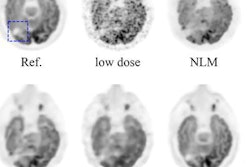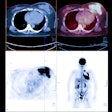Dear Molecular Imaging Insider,
For patients with cancer, early detection and treatment are paramount to achieving a more favorable outcome. Early, effective treatment is even more critical for pediatric patients who have their whole lives ahead of them.
To that end, researchers from several children's hospitals and cancer research facilities have found that calculating maximum standardized uptake values (SUVmax) on FDG-PET/CT scans at certain time points after the start of chemotherapy can predict outcomes for pediatric patients with osteosarcoma. The findings suggest that early changes in treatment regimens before surgical intervention could result in more favorable results for these patients.
Read more about this cutting-edge study in our Insider Exclusive.
Meanwhile, artificial intelligence is finding use in the realms of both molecular imaging and nuclear medicine. Researchers from Stanford University have trained a deep-learning algorithm to process PET image data acquired with ultralow doses of radiopharmaceuticals, so scans can be performed at only 1% of current dose levels.
In the meantime, researchers from the University of California, San Francisco are exploring whether radiologists using deep-learning models can better determine if a patient has clinical cognitive issues. While there are still a few deficiencies to rectify, the technique has worked well in cases of Alzheimer's disease.
In other news, combining PET scans with a novel radiotracer could help researchers track damage to myelin in the brain, providing insight into the treatment of multiple sclerosis as well as the development of other disorders.
A preclinical study from Belgium has shown promising results with the PET tracer florbetapir for targeting amyloid plaque and tau tangles in the brain and potentially evaluating the efficacy of certain Alzheimer's treatments.
Finally, researchers at the University of California, Davis report continued progress on their development of a total-body PET/CT scanner designed to image patients in less than one minute.
Be sure to stay in touch with the Molecular Imaging Community on a daily basis to be informed on the latest news and research.




















